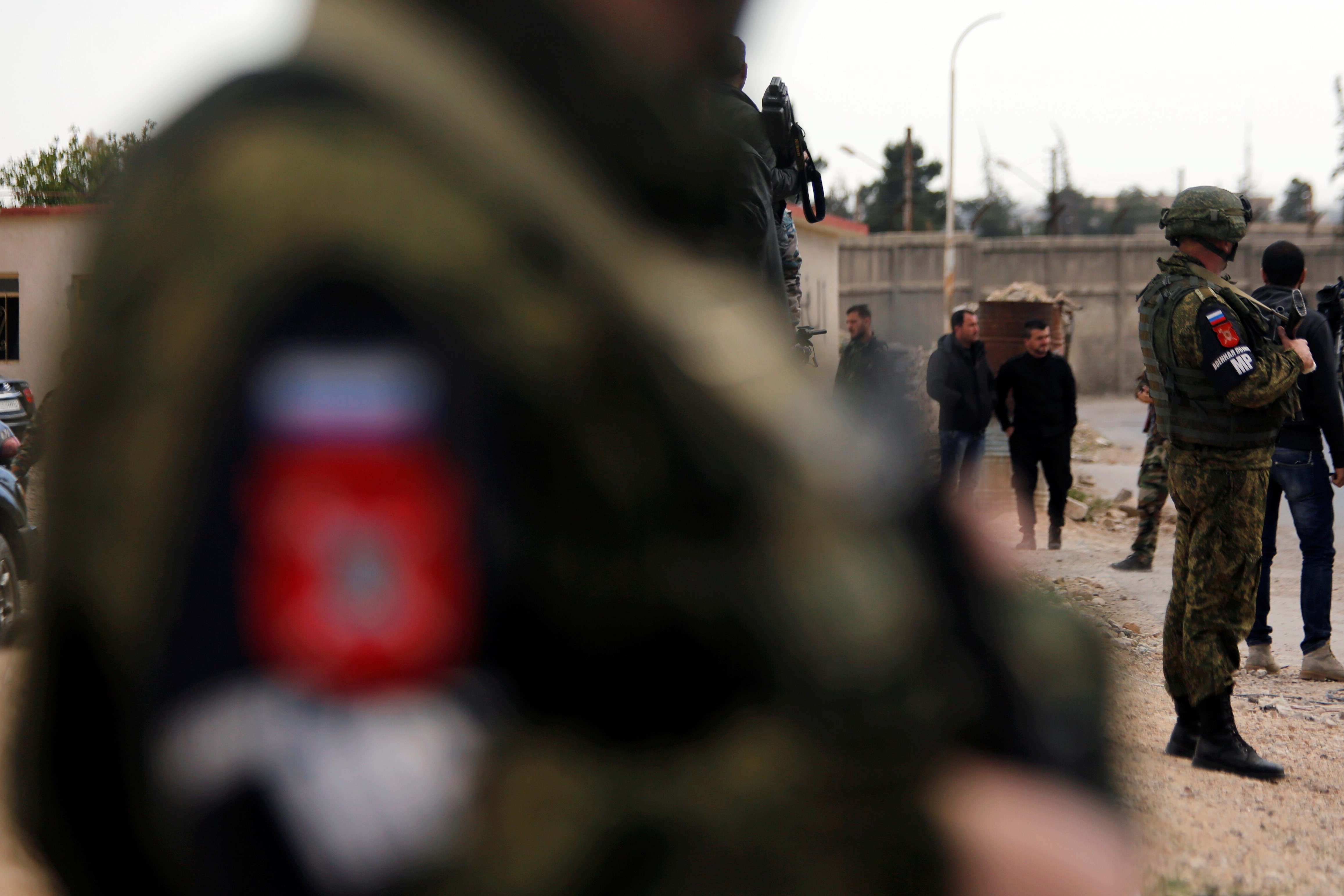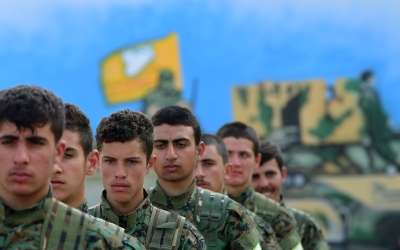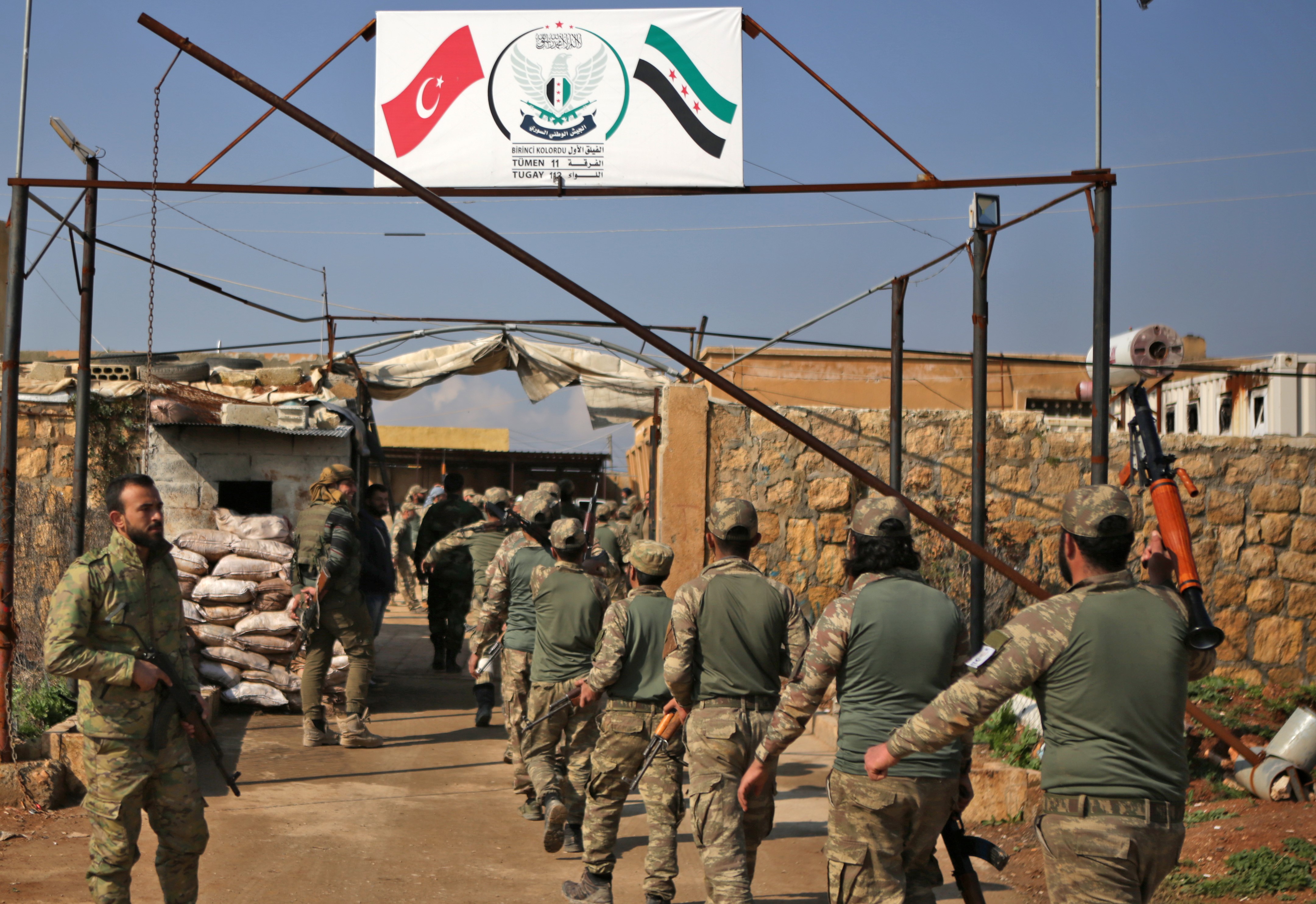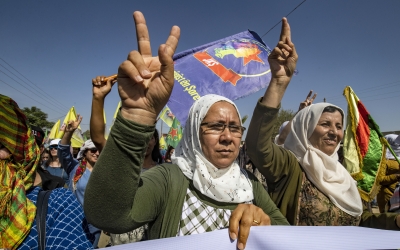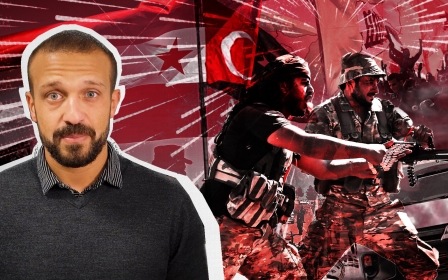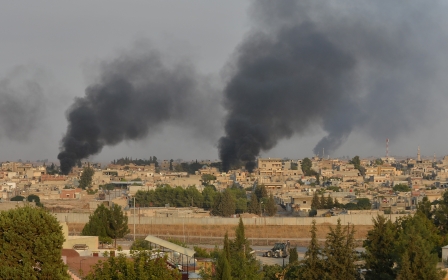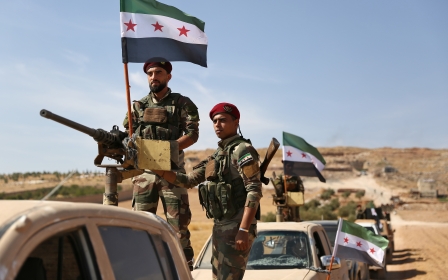Russia can bring Turkey back from brink in Syria offensive
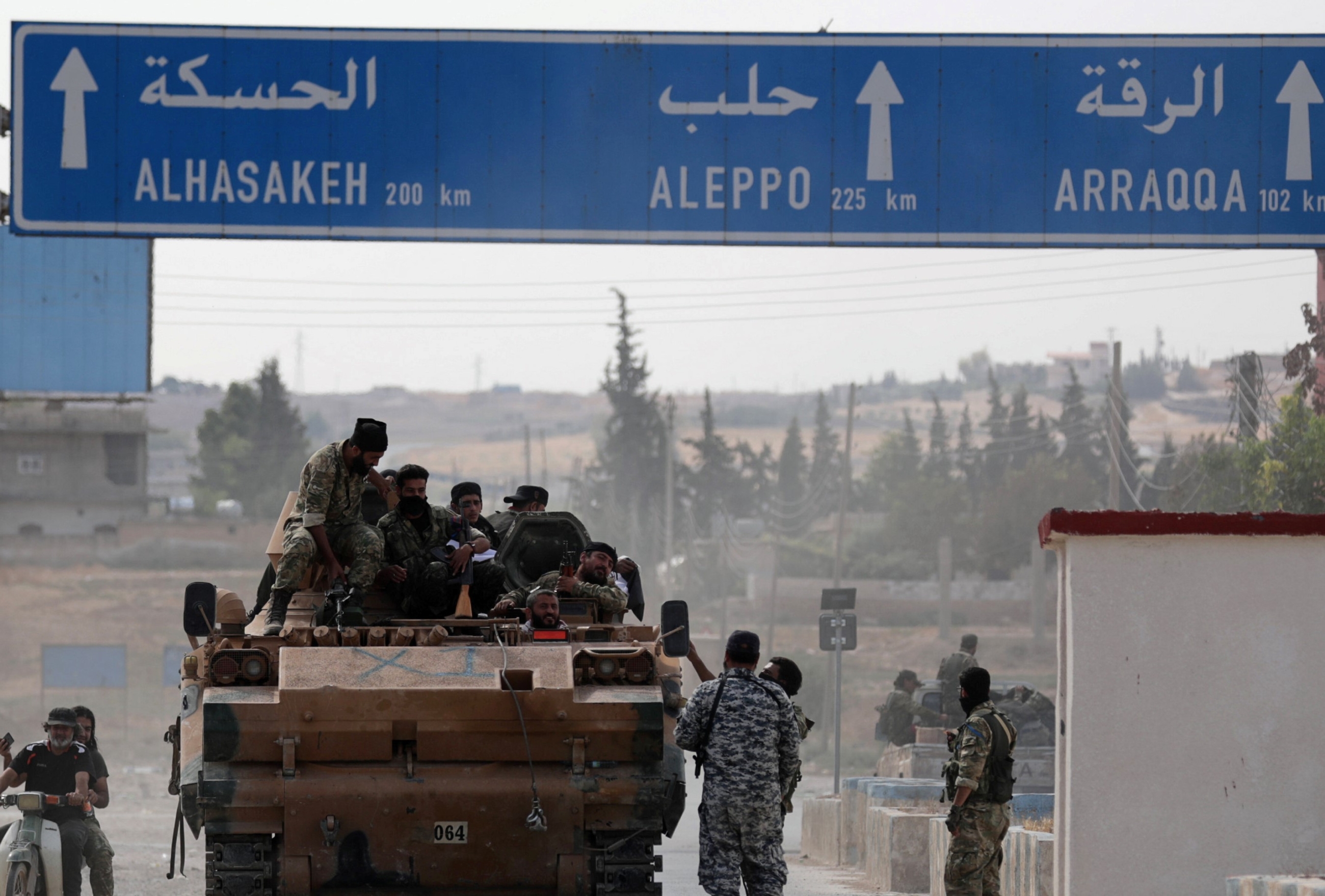
It could be argued that, since its first intervention in Syria in September 2015, the Russian Federation has not made a single policy error. Strategic masterstroke has followed strategic masterstroke and, in a certain light, Vladimir Putin would seem to have played the game to perfection.
Contrast this with Turkey, whose every action in Syria has resulted in international condemnation, regional isolation and domestic woes for its President Recep Tayyib Erdogan.
A secret deal?
Turkey can point, in its defence, to a legitimate claim to have done more than any other country to absorb refugees and secure the welfare of the more than three million Syrians they host.
Ankara will also point to its concerns about a "terror corridor" on its doorstep, which would result in a boost for the Kurdistan Workers' Party (PKK), a group designated as a terrorist organisation by the EU and US, as well as Turkey.
There is strong reason to believe, though, that Erdogan's Operation Spring of Peace is backfiring. There has been global outrage at the invasion, the Kurds have been pushed into an alliance with the Syrian government while the Arab League, which has been vacillating over whether to accept Syria back into their fold, has outright condemned Turkey’s action.
Is it too early to conclude that Turkey has already condemned itself to failure or has Russia -once again- brokered a behind the scenes deal?
Some analysts actually read this condemnation as moving a step closer to welcoming Syria back into the Arab fold formally.
So is it too early to conclude that Turkey has already condemned itself to failure or has Russia - once again - brokered a behind the scenes deal?
The warning signs
For the past two years, the Syrian government has been negotiating with the various Kurdish groups in the northeastern parts of the country, without much success. However, last year, slowly but surely, the Kurds increasingly began to look to Damascus as their best bet.
The Syrian Democratic Forces (SDF) had been negotiating - albeit reluctantly - with the Syrian government as it became obvious that the Turks would use Idlib-based groups to launch an operation east of the Euphrates.
Furthermore, the divide between US, Turkey and European powers on what to do with Idlib and the Kurdish-held areas meant that the Damascus option was at least the most risk-free, a reverse back to the pre-2011 status quo, with more rights for Kurds this time, according to the new agreement signed by Damascus and SDF.
For the Kurds, all the signs of a betrayal were there. Trump consistently said he was not interested in Syria. He ordered the redeployment of troops and kept the focus on withdrawing from Syria despite warnings from a wide array of US officials.
The Syrian government consistently warned the Kurds that the United States would not protect them and that, when push came to shove, the Kurds would be abandoned - again.
Now with the Turkish military operation and the US announcement of a pull out to facilitate Turkey's invasion, that warning has become a reality and the Kurdish groups have begun to let the Syrian military move in on key cities such as Kobane and Manbij.
Gone are the dreams of Kurdish self-autonomy and the Kurdish groups have lost all their cards against Damascus.
Prominent Syrian military analyst Danny Makki - in a series of tweets - has disclosed how elements of the SDF shall be absorbed into the Syrian military under the supervision of the Russians, as has happened with other militias.
Similarly, Syrian forces and Kurdish forces will now do joint patrols and the Syrian flag shall be raised in all the military installations.
Turkey-Syria fault lines
Increasingly loud criticism from the West rankles Erdogan, while Russia is in a perfect position to perhaps even reinforce the Adana Agreement - signed in 1998 between Ankara and Damascus - which makes it mandatory for the Syrians to patrol their border without fear of a Turkish invasion.
In other words, Russia could ask the Turkish military to back off, per the Adana Agreement, as the Syrian military could guarantee that the PKK would not have breathing space in Syrian territory.
The Russian diplomatic and political support that it takes from bargaining with Turkey has given Syria far more leverage than it had before the Moscow arrived on the battlefield
For this to happen, Ankara also has to drop its support of groups hostile to Damascus.
It is not forgotten in Ankara that this is the very Syrian army that, although now hostile to Turkey, was the bedrock of the Adana peace deal that led to Syrian help in fighting the PKK, capturing its leader Abdullah Ocalan and establishing a temporary friendship between Turkey and Syria. If the current trajectory of the conflict is to be maintained, Russia could well enforce this agreement again, and also lay the roadmap to better relations between Turkey and Syria.
In what has now come to be a repeat of events from the last two to three years of the conflict, the Russian diplomatic and political support that it takes from bargaining with Turkey has given Syria far more leverage than it had before the Russians arrived on the battlefield.
Things are looking good for Syria at the Arab League as well, with Algeria, Lebanon and Iraq demanding Damascus's readmission into the group at its recent summit. Syrian officials also met with the head of the league at the United Nations General Assembly a few weeks ago.
But it should be noted that the collective Arab condemnation of Turkey for its Syrian invasion is also a culmination of years of bad blood between leading Arab states such as Saudi Arabia, UAE and Egypt following Turkey's condemnation of the military coup in Egypt.
No confrontation
There is little chance of direct confrontation between Turkey and Syria - Russia will not let that happen. Since the beginning of the Astana process, the Russians have played every diplomatic and military manoeuvre to ensure no harm is done to the Syrian government and military positions.
Turkey is also dependent on Putin, so it will avoid upsetting him, given that no Western country will support Turkey, not even Nato. Russia was the first country to assist Turkey following the failed 2016 coup and has built up considerable leverage with Erdogan.
On the other hand, Turkey has failed to live up to its commitments in Idlib, which frustrated the Russians, as it has also failed to reign in the extremist fighters that it calls rebels.
What next?
Turkish and American political aims seem to have been firmly defeated. The US wanted to establish a semi-autonomous Kurdish region which would not be attacked by Turkey or controlled by Assad, while Turkey wanted regime change in Damascus.
The Kurds, for the time being, are not American allies. They have done a deal with the Russians and Assad. The Turks are isolated from the Arab world.
What happens next is not certain, but the advantage is with Assad and Putin, not Erdogan. Turkey will now be reliant on what the Russians can deliver in terms of Syrian guarantees to protect its security.
Similarly, Russia has been far less critical of the Turkish invasion, as compared to the US and Nato.
This means that despite being heavily supportive of Assad, Russia still sees Turkish interests and a long term alliance with Ankara as a key to upsetting the north Atlantic alliance's overall viability.
The views expressed in this article belong to the author and do not necessarily reflect the editorial policy of Middle East Eye.
Middle East Eye propose une couverture et une analyse indépendantes et incomparables du Moyen-Orient, de l’Afrique du Nord et d’autres régions du monde. Pour en savoir plus sur la reprise de ce contenu et les frais qui s’appliquent, veuillez remplir ce formulaire [en anglais]. Pour en savoir plus sur MEE, cliquez ici [en anglais].



